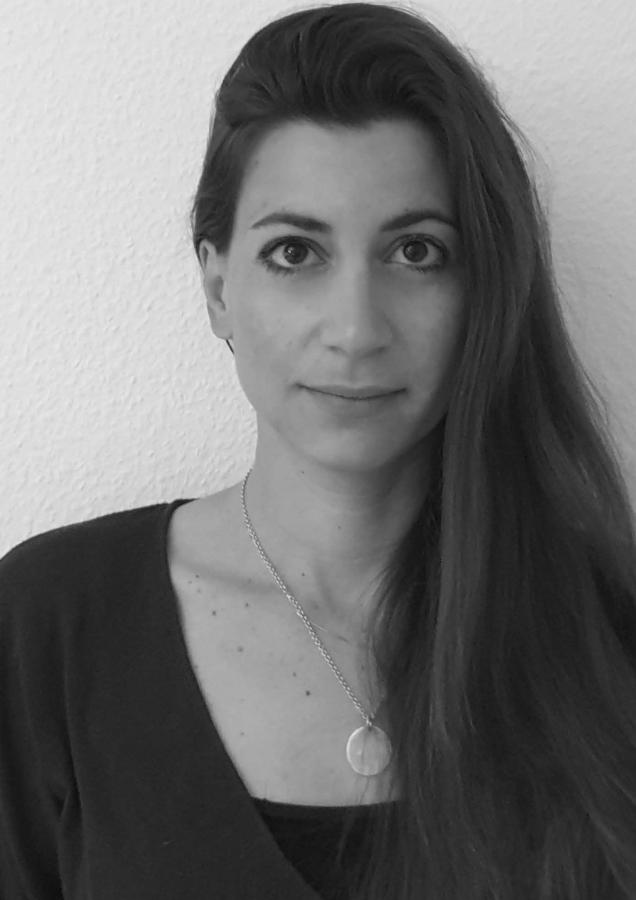News
22.01.2024
What human fossils reveal about life stories
Tübingen Prize for Early Prehistory and Quaternary Ecology for anthropologist Paola Cerrito: Using new methods, she reads the life stories of individuals from their bones and teeth, and investigates the development of typical human life patterns
The Tübingen Early Prehistory and Quaternary Ecology Prize this year goes to Dr. Paola Cerrito of Zürich University. She receives the award for her doctoral thesis, "Histological and elemental markers of physiological stressors in hard tissues" in which she investigates how events that influence the metabolism, such as reproduction, menopause and changes in lifestyle, are permanently recorded in the skeleton. This is regarded as the biological archive of a human life. Applied to fossil human remains, new insights can be gained into the life histories of individuals and the development of human traits, such as unusually short inter-birth intervals and an extended post-reproductive lifespan.
Paola Cerrito (born 1990 in Italy) studied Biological Anthropology at the Sapienza University of Rome. She completed a Master's degree in Biological Anthropology at New York University, where she also completed her doctorate in 2022. She has been a visiting researcher at the University of Geneva, has worked as a postdoc at ETH Zurich and, since August 2023 has been a postdoc at the University of Zurich. From July 2024, she will be Assistant Professor of Evolutionary Anthropology at Duke University in Durham (USA).
Cerrito is researching the question of how certain life patterns have developed during the evolution of Homo sapiens: At what age did women become pregnant for the first time in a particular era, at what interval did they bear children, how long did they live after menopause, and what changes occurred in human life histories? The development of such life history variables is traditionally difficult to study: Bones and other mineralized tissues are mainly formed in childhood and adolescence, so that hardly any traces of events in adulthood remain.
Cerrito therefore concentrated on a little-researched dental tissue, the root cementum, which anchors the tooth in the jaw. The special thing about this cementum is that it continues to be deposited - a bit like the rings of a tree - throughout the life of the individual. Using improved histological preparation and imaging techniques, Dr. Cerrito examined samples from people with known life history and medical records. She was able to show that events such as births and menopause can be detected in the cementum and assigned to an age, based on the annual deposits.
Using synchrotron radiation on the ELETTRA SYRMEP beamline, she proved that such "histological markers" can be detected using virtual histology. As the teeth do not have to be destroyed, even rare fossil human remains can be examined in this way. In a pilot study, she applied these methods for the first time to Neanderthal teeth from Krapina (Croatia; approx. 130,000 years old) and teeth of early farmers from what is now Serbia. However, the histological markers are non-specific and it is not possible to distinguish between signs of pregnancy and signs of menopause.
Cerrito therefore also investigated what chemical signature is left on the skeleton by various events in an individual’s life. Her aim is to trace the evolution of the typical human life and to understand the interplay of the developmental impulses involved, such as social and reproductive behavior and the need to make optimum use of available food resources.
The annual Early Prehistory and Quaternary Ecology Prize has been awarded annually for 26 years. It comes with 5000 euros in prize money, sponsored by Romina Mineralbrunnen GmbH.
Contact:
Professor Nicholas Conard
University of Tübingen
Senckenberg Centre for Human Evolution and Palaeoenvironment (HEP)
Institute of Prehistory and Medieval Archaeology
+49 7071 29-72416
nicholas.conardspam prevention@uni-tuebingen.de
Contact for press:
Eberhard Karls Universität Tübingen
Public Relations Department
Dr. Karl Guido Rijkhoek
Director
Antje Karbe
Press Officer
Phone +49 7071 29-76789
Fax +49 7071 29-5566
antje.karbespam prevention@uni-tuebingen.de
All press releases by the University of Tübingen

